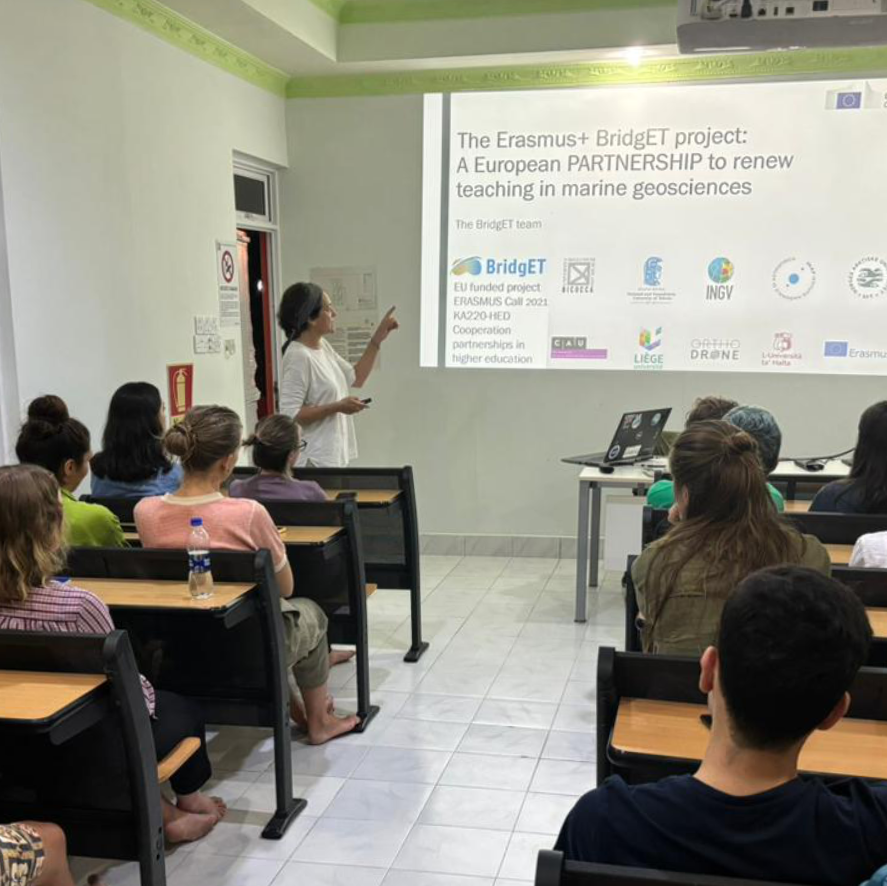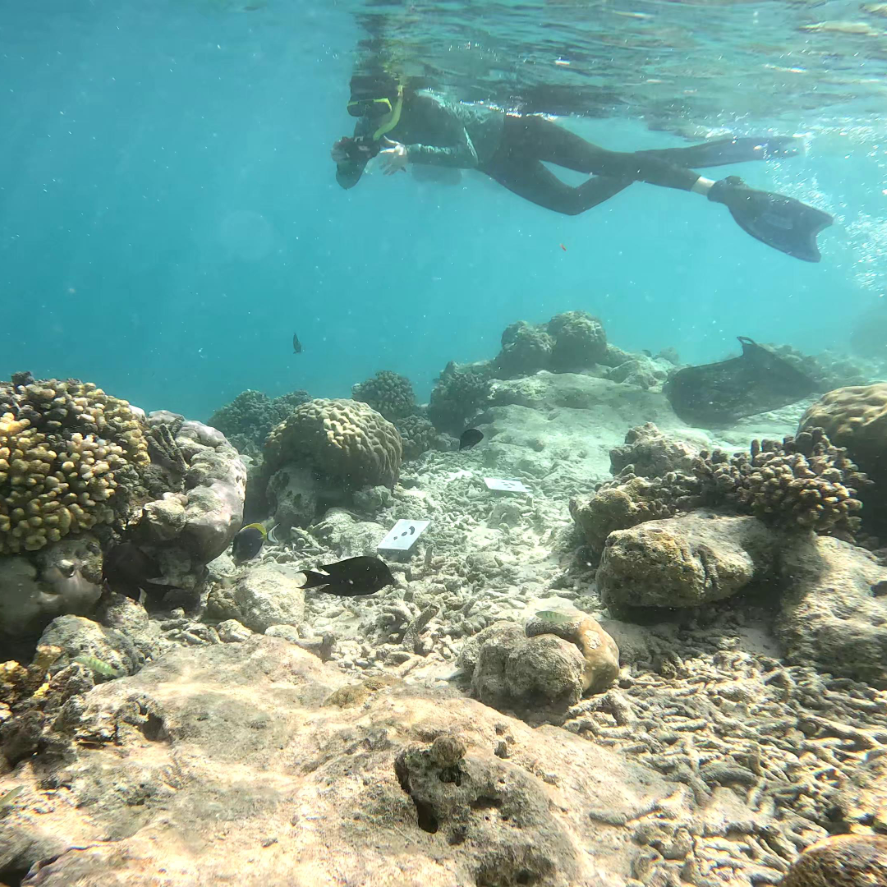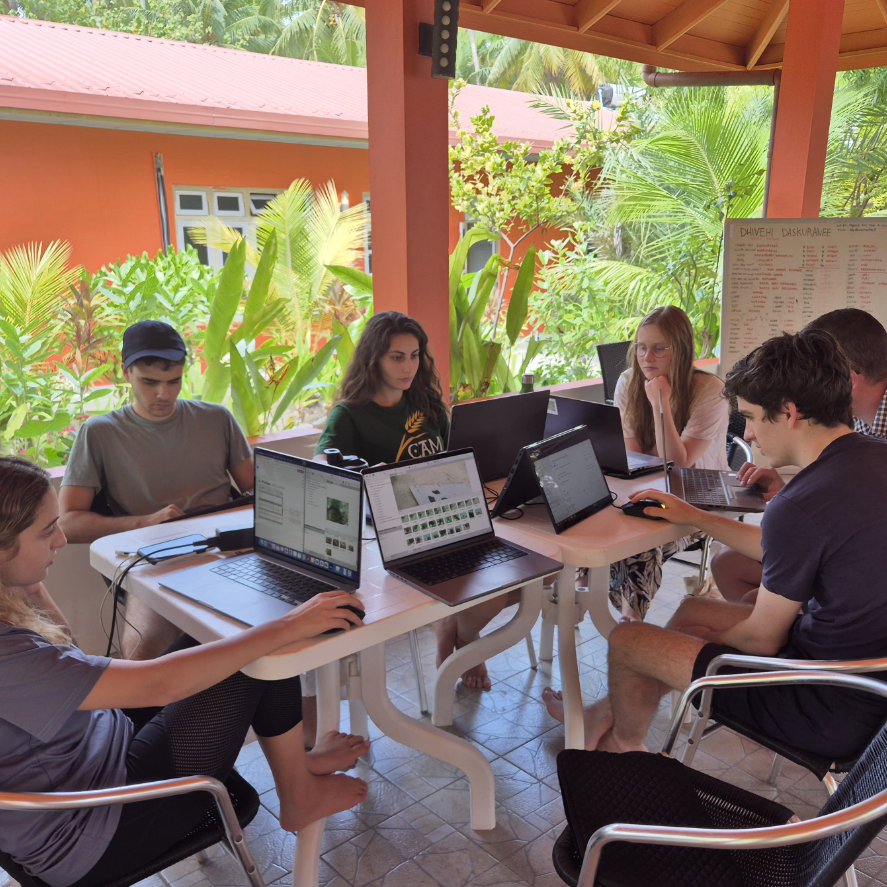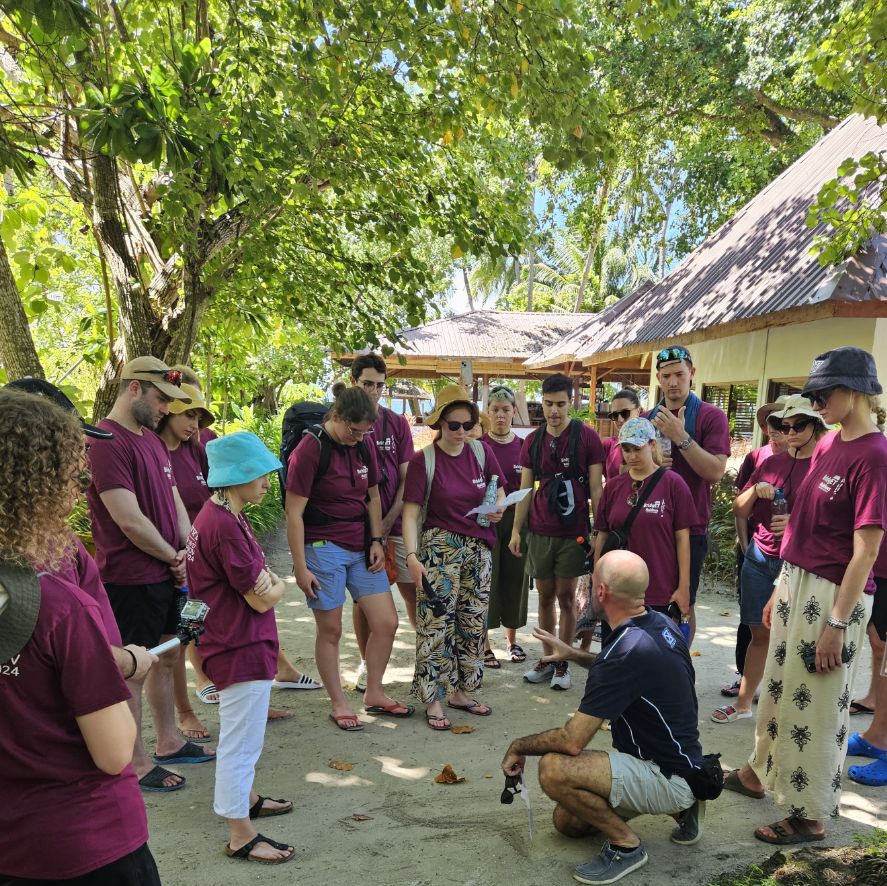PROGRAMME - MALDIVES SUMMER SCHOOL
CLASSROOM SESSIONS
Several lectures were delivered by all BridgET partners at the MaRHE Center, providing participants with a comprehensive understanding of the project's scope and objectives. The sessions covered the geological, geomorphological, and environmental characteristics of the Maldivian Islands, with a particular focus on the complexity of coral reef systems and the geohazards and climate change threats they face. In addition to theoretical lectures, students received hands-on instruction on the equipment to be used in fieldwork and the software required for data processing during the school.
Each research partner also conducted a seminar, presenting their group's activities and their connection to BridgET’s core principles. Additionally, a team from MBARI was present at the center during the same period, testing advanced equipment. This provided a unique opportunity for participants to observe real-time equipment testing and engage in valuable knowledge exchange with experts in the field.


FIELDWORK
Field activities took place just outside the MaRHE Center, along the coastline and in the waters surrounding Magoodhoo Island, utilizing a range of equipment to collect both terrestrial and marine datasets.
Geospatial mapping was conducted using UAVs (Unmanned Aerial Vehicles) and MBES (Multibeam Echosounders). UAV surveys focused on the shallow waters of the lagoon, mapping the emerged and nearshore environments, while MBES was employed to explore the deeper sections of the lagoon, with the goal of integrating these datasets where possible. To validate the acoustic data and further investigate the coral reef environment, an ROV (Remotely Operated Vehicle) was deployed.
Through multiple snorkeling sessions, students practiced underwater photogrammetry using various cameras, capturing high-resolution images for 3D reconstruction. Additionally, 360° video footage was recorded around the island, providing an immersive perspective of the surrounding marine and coastal landscapes.
LABORATORY SESSIONS
During the laboratory sessions, participants were introduced to all the equipment, allowing them to familiarize themselves with the instruments before using them in the field. A dedicated exhibition showcased a wide range of technologies, including UAVs, MBES, and ROVs. Thanks to the participation of MBARI researchers, students also had the unique opportunity to explore an Autonomous Underwater Vehicle (AUV) and an Uncrewed Surface Vehicle (USV). This exhibition served as a valuable platform for discussing the role of these advanced technologies in coastal and marine research.
Following multiple data collection sessions, participants learned the fundamentals of data processing and analysis using various software tools. These included QPS Qimera for processing MBES data, Agisoft Metashape for applying photogrammetric techniques to terrestrial and underwater imagery, and ESRI ArcGIS Pro for spatial analysis. Additionally, through the use of an Oculus headset, students were able to immerse themselves in a Virtual Environment created from the Santorini Summer School data, enhancing their understanding of spatial and geological dynamics.


OTHER ACTIVITIES
Through fieldwork on the islands of Faafu Atoll, the participants had the opportunity to come into contact with a set of socio-environmental and cultural aspects of the Maldives.
During the excursion to Filitheyo Island Resort, an exploration of the human metabolism of these unique local systems took place. In particular, waste and drinking water management strategies and the peculiar organisation of human activities in places where space is the main resource. In Adanga, the participants spent a day with Faafu fishers on an island that has been used for decades as a stopover point on the atoll's fishing routes. The numerous contacts with the inhabitants of Magoodhoo facilitated the daily experience of islanders' life and the direct knowledge of some cultural practices, such as Bodu Beru music and some Maldivian cuisine. Finally, on the last day, the group was guided around a few spots in Malé, the capital of the Maldives, thus having the opportunity to get to know the economic and social dynamism of the fish market district and some elements of the national cultural heritage.

